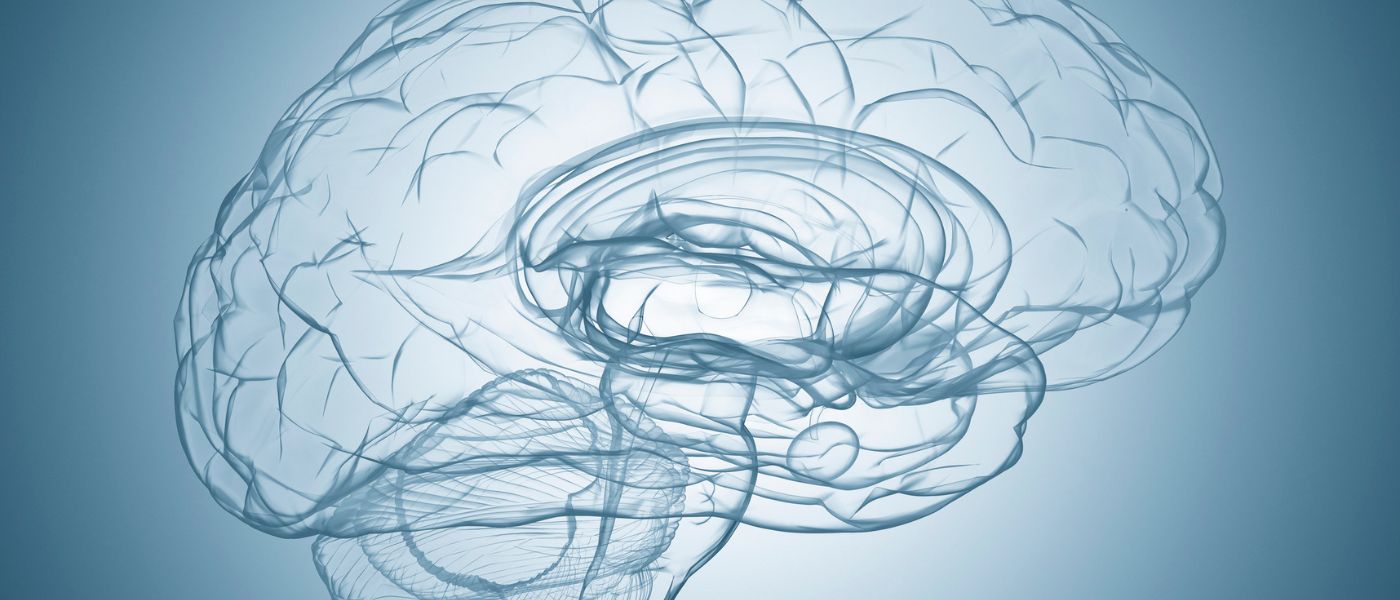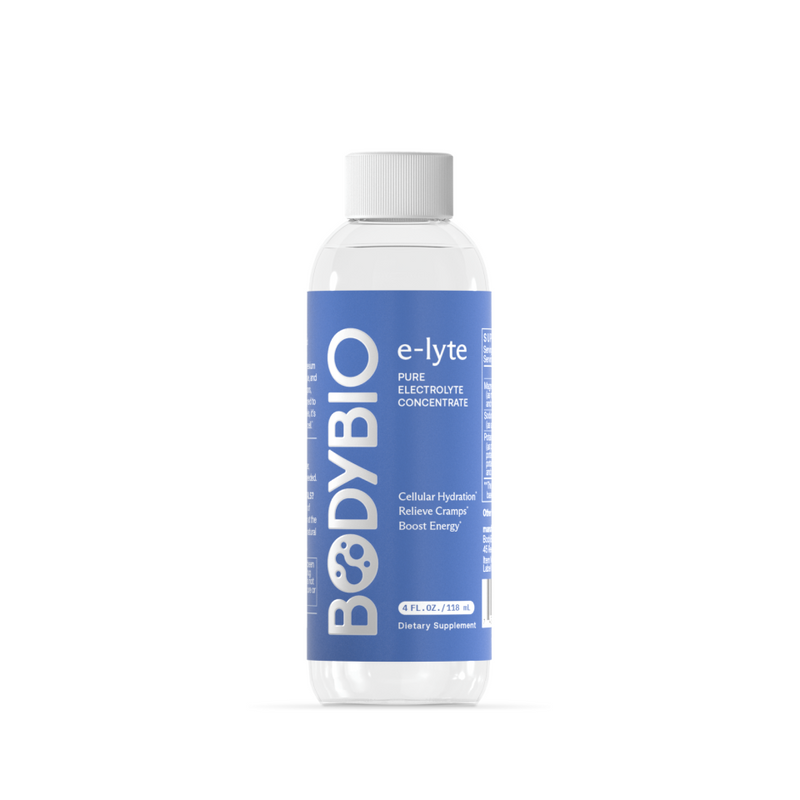Creatine Benefits Beyond Exercise: Energy, Mood, Healthy Aging, & More
Authors:

Dr. Thomas Wnorowski
PhD, CNCC Research Director, BodyBio & Biomedical Nutritionist
Key Takeaways:
Key Points:
- Creatine is well-known amongst athletes and serious weightlifters for increasing muscle mass, but there are many more benefits to taking creatine outside of the gym.
- Creatine is remarkably supportive for brain health and may even operate like a neurotransmitter according to the latest research.
- Other creatine benefits include healthy aging, hormonal balance for women, and boosting energy for those with chronic fatigue and post-viral illness.
Most people are familiar with creatine as “the body builder’s supplement,” used to maximize muscle growth and energy output during intense strength and cardio workouts. Creatine also happens to be one of the most researched supplements on the market, with a long history of safety and beneficial use.
But what about taking creatine outside of working out? Are there other uses and benefits for this well-known supplement, even if you’re not the type of person who hits the gym six days a week?
The short answer is yes! It turns out creatine is quite versatile, supporting cognitive function, metabolism, boosting mood, and more. Let’s explore the uses of creatine both inside and outside of the gym.
Table of Contents:
- What is Creatine?
- Why is Creatine So Popular?
- Additional Benefits of Creatine
- Who Shouldn’t Take Creatine
- Stay Well Hydrated to Maximize Creatine Benefits
What is Creatine?
Creatine is a compound made of three amino acids — glycine, arginine, and methionine — that stimulates energy production in the body, primarily in the muscles but also in the brain. Because of its quick energy production abilities, creatine supplementation is known to increase explosiveness and power during exercise, maximizing your workouts to build muscle.
As a supplement, creatine has one of the longest track records of any supplement in terms of safety and efficacy. Any excess unused by your cells is efficiently excreted out in urine. However, it’s important to stay well hydrated when taking creatine, and taking creatine alongside carbohydrates and electrolytes can improve absorption.
Interestingly, new research suggests that creatine may operate similar to a neurotransmitter in the brain, boosting mood and lowering symptoms of depression. We need more well-designed studies to confirm this role, but it is an exciting development in the ongoing search for effective mental health solutions with little to no side effects.
Why is Creatine So Popular for Working Out?
Creatine helps the body recycle ATP (adenosine triphosphate), the energy molecule, to fuel muscle cells. So when you consistently feed your muscles more creatine (and eventually reach full creatine saturation), you’re able to perform better in workouts and sports, and you’ll likely see more muscle definition as a result.
Creatine also helps muscle cells absorb and hold more water, making your muscles appear fuller and stronger. This is why creatine is so popular among bodybuilders and everyday gym-goers alike.
Of course, creatine isn’t a substitute for regular exercise or adequate protein intake to build muscle mass. But it can support both of these things and help your body maximize performance in the gym as well as in everyday activities.
Additional Benefits of Creatine
So what are some other benefits of creatine without working out? It might surprise you to learn that there are quite a few, and even those not looking to build serious muscle can benefit from supplementing creatine.
Cognitive Support & Neuroprotection
Creatine is well known to support brain health and even protect the brain from neurological damage, supporting cognitive processing and recovery from acute stressors such as sleep deprivation. It also seems to be effective for reducing symptoms of mild traumatic brain injury due to concussion or physical trauma.
Creatine may even support recovery from degenerative conditions like multiple sclerosis (MS) that affect the central nervous system. But perhaps more practically, it can help us get through a full day of thinking, questioning, and decision-making by stimulating more energy production in the brain.
Healthy Aging
Creatine can support healthy aging in the brain and muscles, helping to ward off cognitive decline and muscle wasting, as well as bone loss in older adults. These are some of the most prominent concerns around aging-related diseases and health complications, and creatine may offer a simple solution.
Women’s Health
Women naturally have 70-80% lower creatine stores than men, yet research shows that creatine may be especially important during menstruation, pre- and post-partum, pregnancy, and menopause to support hormone balance and energy production.
Women may also particularly benefit from creatine due to increased rates of sleep deprivation and depression compared to men. If you’re a woman looking to try creatine for your health, don’t be discouraged by its reputation for weightlifters and muscle heads. Creatine can be just as valuable, if not more so, for women as men.
Chronic Illness, Fatigue, and Post Viral Syndrome
Another potential use of creatine is to increase cellular energy for those with chronic illness and persisting fatigue, including long COVID sufferers. Long-term, consistent supplementation (3-6 months) seems to be the best course of action for these individuals to see improvements in fatigue, cognitive function, headaches, body aches, and other associated symptoms. Again, creatine is so well-tolerated by nearly everyone that it doesn’t hurt to try if you’re looking for alternative solutions for chronic fatigue or post-viral syndrome.
Who Shouldn’t Take Creatine
Because creatine is processed through the kidneys (and then excreted out if not being used by your cells), anyone with kidney problems should not use creatine. Those who are unable to drink enough water per day should also not use creatine, since creatine draws water into the muscles and can cause dehydration if enough water isn’t available. Aim for at least 64-80 ounces daily, and possibly more if you’re still feeling parched or you exercise routinely.
Do You Need to “Load Up” on Creatine?
Some fitness experts and nutritionists recommend doing a creatine “loading phase” when starting the supplement to saturate the muscles with creatine as quickly as possible. The typical recommendation is to take 20g of creatine per day, spread out in 5g doses, for 5-7 days, before scaling back to a standard dose of 3-5g per day.
This may be worthwhile for serious weightlifters and athletes, but it isn’t really necessary if you’re using creatine to generally support your health and exercise ability. Taking high-dose creatine is also more likely to cause bloating due to water retention.
Conversely, if you find yourself sensitive to supplements, it’s totally fine to start at a lower dose of 1g or even 500mg and work your way up over time.
Stay Well Hydrated to Maximize Creatine Benefits
One thing you absolutely must do when taking creatine is make sure you’re well hydrated, especially when you first begin supplementing. Creatine pulls water into your muscles and holds it there, leaving less H2O circulating for the rest of your cells. But regardless of your creatine status, your cells won’t absorb much water without adequate electrolytes.
We created E-lyte to be your trusty, sugar-free, grab-and-go source of electrolytes, perfectly formulated to nourish your cells.
Mallik, B., & Frank, C. A. (2023). Is creatine a CNS neurotransmitter?. eLife, 12, e91824. https://doi.org/10.7554/eLife.91824
Forbes, S. C., Cordingley, D. M., Cornish, S. M., Gualano, B., Roschel, H., Ostojic, S. M., Rawson, E. S., Roy, B. D., Prokopidis, K., Giannos, P., & Candow, D. G. (2022). Effects of Creatine Supplementation on Brain Function and Health. Nutrients, 14(5), 921. https://doi.org/10.3390/nu14050921
Roschel, H., Gualano, B., Ostojic, S. M., & Rawson, E. S. (2021). Creatine Supplementation and Brain Health. Nutrients, 13(2), 586. https://doi.org/10.3390/nu13020586
Ostojic S. M. (2022). Creatine and multiple sclerosis. Nutritional neuroscience, 25(5), 912–919. https://doi.org/10.1080/1028415X.2020.1819108
Forbes, S. C., Candow, D. G., Ferreira, L. H. B., & Souza-Junior, T. P. (2022). Effects of Creatine Supplementation on Properties of Muscle, Bone, and Brain Function in Older Adults: A Narrative Review. Journal of dietary supplements, 19(3), 318–335. https://doi.org/10.1080/19390211.2021.1877232
Smith-Ryan, A. E., Cabre, H. E., Eckerson, J. M., & Candow, D. G. (2021). Creatine Supplementation in Women's Health: A Lifespan Perspective. Nutrients, 13(3), 877. https://doi.org/10.3390/nu13030877
Slankamenac, J., Ranisavljev, M., Todorovic, N., Ostojic, J., Stajer, V., & Ostojic, S. M. (2023). Effects of six-month creatine supplementation on patient- and clinician-reported outcomes, and tissue creatine levels in patients with post-COVID-19 fatigue syndrome. Food science & nutrition, 11(11), 6899–6906. https://doi.org/10.1002/fsn3.3597

